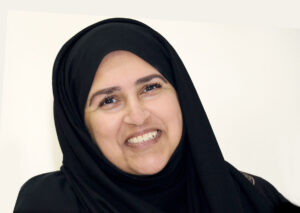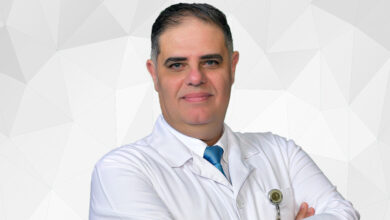Ms. Sultana Afdhal
CEO of World Innovation Summit for Health (WISH)
Ms. Sultana Afdhal
We hope that we can continue to push the boundaries and further our learning, and that of our community, on complex issues surrounding healthcare

The World Innovation Summit for Health (WISH) is a global initiative whose aim is to promote and facilitate innovation in healthcare delivery around the world. “Hospitals” magazine had the privilege to meet with Ms. Sultana Afdhal, CEO of World Innovation Summit for Health (WISH) to talk about the inception of the Summit, the ways to manage palliative care without disregarding the religious ethics, among other things. Below is the full interview:
Can you tell us who was behind the idea of this Summit? And why?
The Summit was conceived from a conversation that I had with Archbishop Vincenzo Paglia, who is the President of the Vatican’s Pontifical Academy for Life, during an interfaith workshop that we co-hosted with Georgetown University in Doha in January 2019 on palliative care. We felt that the workshop had introduced new insight that we wanted to expand on. Considering that a new platform with more expansive perspectives would further enrich this discourse, we suggested Rome as a setting for a symposium and to collaborate with Archbishop Paglia and his team to bring to the event a range of people from different faiths and from the healthcare community.
Archbishop Paglia said he was very pleased to accept and proved to be a wonderful host for the event, helping us gather people from around the world to explore ways to better acknowledge the importance the role of faith plays when people are facing serious health-related difficulties in their lives, and to make sure that the spiritual health of an individual, their families and friends, and healthcare professionals is taken into account alongside their physical health and mental wellbeing.
The symposium is entitled: Relationship between religion and medical ethics, don’t you think this issue is way too complicated especially because it involves many religions views?
Yes and no, some fundamental structures or thoughts between the religions were easy to understand, such as the basic need to provide dignity and support to our loved ones, during the end of their lives or during mental illness.
The more complex issues gave us a rare insight into how the three monotheistic religions interpret life-defining healthcare decisions.
While we could not fully examine every aspect, we believe the inclusivity and platform we provided for open discourse of often emotive and difficult topics gave participants in our event the opportunity for further learning and to build upon.
Palliative care and mental health of the elderly was the focus during the first day of the symposium. How is Qatar handling this issue and what are the ways to manage palliative care without disregarding the religious ethics?
To answer this, I can give the example of Qatar, my home country and the country where WISH, being an initiative of Qatar Foundation, is based. Medically speaking, Do Not Attempt Resuscitation (DNAR) Orders became part of Qatar’s health protocol 15 years ago, and were revised in 2017.
DNARs were the subject of a fatwa (number 12086), issued in 1989 by the Council of Senior Scholars. This fatwa suggested that withdrawing life-sustaining treatments can be acceptable, and clearly stated that the authority to take CPR-related decisions is exclusive to a medical team consisting of three physicians.
However, while a clear framework exists for palliative care, doctors in Qatar come from various religions and ethnic backgrounds, and I believe that more can be done to ensure they all have the same type of training and understanding to effectively administer medical and emotional support for palliative care patients and their families.
Mental health is incorporated into the seven pillars of Qatar’s National Health Strategy, emphasizing its importance to the country. This also included the mental health of the elderly. Dr. Hanadi, the National Lead for Healthy Ageing for Qatar’s Ministry of Public Health and someone who was present at our Rome event, has been instrumental in ensuring every aspect of the care of the elderly is adequately addressed, and is working to create a support system that will also provide care for their mental health issues.
After the Vatican symposium, what are the next steps you are considering to take this issue forward?
During the closing of the symposium, we committed to supporting the palliative care training of healthcare practitioners. We are now beginning to map out timelines and reach out to stakeholders to begin this work. We are also considering the various ways that we can simplify the messaging around palliative care, and provide healthcare practitioners the basic understanding of how patients’ view medical decisions through the lens of religion.
What are your final thoughts regarding the symposium? How do you evaluate it?
I felt it was a wonderful gathering of religious scholars, academics, healthcare professionals, and people who wanted to express their thoughts and openly discuss difficult and life-changing issues.
We hope that the breadth of discourse provided some learning and insight to all the participants.
We, at WISH, felt very privileged to be part of this event, and hope that we can continue to push the boundaries and further our learning, and that of our community, on complex issues surrounding healthcare.
















